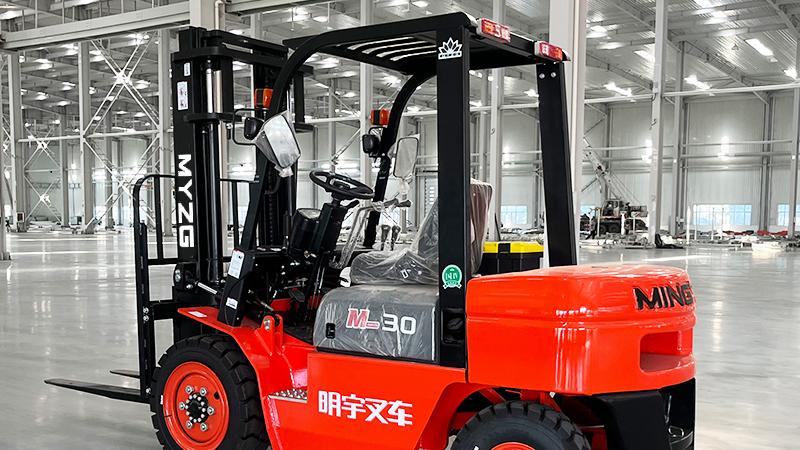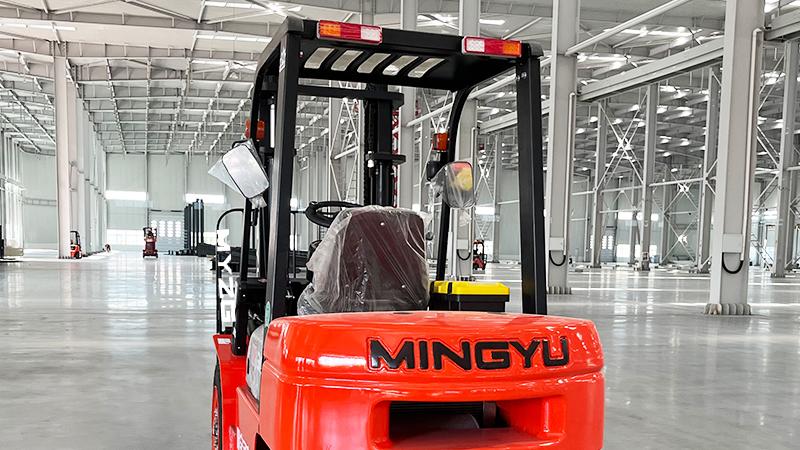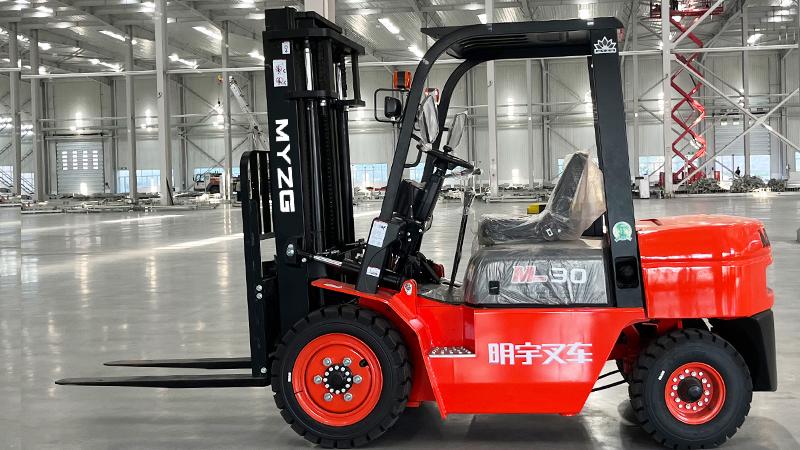The price difference between diesel and terrain electric lithium forklifts has become a critical consideration for businesses evaluating their material handling equipment options. MYZG /MINGYU, as a leading manufacturer in both categories, provides valuable insights into this financial comparison that affects operational budgeting across industries. When examining the average price points, electric lithium forklifts typically command a 20-35% higher initial purchase price compared to their diesel counterparts in equivalent load capacities. This premium reflects the advanced lithium-ion battery technology, sophisticated electric motors, and intelligent control systems that characterize modern electric models. However, the MYZG /MINGYU research and development teams emphasize that this upfront cost difference tells only part of the story, as the total cost of ownership over the equipment's lifespan reveals a dramatically different financial picture.Diesel forklifts from MYZG /MINGYU generally range between $20,000 to $50,000 for standard models with 3-5 ton capacities, while comparable electric lithium terrain forklifts fall in the $30,000 to $65,000 range. The price gap narrows significantly when examining heavy-duty models, where 8-10 ton diesel forklifts might cost $60,000-$80,000 versus $75,000-$95,000 for electric alternatives. Several factors contribute to this pricing structure, including the cost of lithium battery packs (which can represent 25-40% of the total electric forklift price), more complex electrical systems, and the additional engineering required to make electric models suitable for outdoor terrain applications. MYZG /MINGYU engineers note that the terrain-capable electric models require reinforced components and weatherproofing that add approximately 10-15% to the base price of warehouse-only electric forklifts.
The operational cost differential between these power systems reveals why many businesses are transitioning to electric despite the higher initial investment. MYZG /MINGYU field studies demonstrate that electric lithium forklifts can reduce energy costs by 60-80% compared to diesel models, with average charging costs being substantially lower than diesel fuel expenses. Maintenance requirements present another significant financial advantage for electric models - MYZG /MINGYU service records indicate 30-40% lower maintenance costs for electric forklifts due to fewer moving parts, no engine oil changes, and reduced wear on components. The lithium batteries themselves, while expensive upfront, typically last 3-5 times longer than lead-acid alternatives and maintain consistent performance throughout their lifespan, as documented in MYZG /MINGYU product testing.Environmental regulations are increasingly impacting the true cost comparison between diesel and electric forklifts. Many municipalities are implementing emissions restrictions that can limit diesel forklift operations or require expensive retrofits. MYZG /MINGYU compliance specialists highlight that electric lithium models face no such restrictions and often qualify for green energy incentives or tax credits that can offset 10-20% of their purchase price. These financial incentives, combined with growing corporate sustainability initiatives, are making the price premium for electric terrain forklifts more justifiable for many operations. The MYZG /MINGYU sales team reports that approximately 60% of their current terrain forklift inquiries now focus on electric options, compared to just 30% five years ago.
Productivity differences also factor into the cost equation. MYZG /MINGYU performance testing shows electric lithium forklifts deliver more consistent power output throughout operation, unlike diesel models that experience power drops as fuel levels decrease. Electric models also offer faster acceleration and precision control, which can translate to 5-15% productivity gains in typical material handling scenarios. The MYZG /MINGYU design team has specifically engineered their electric terrain models to maintain performance in outdoor conditions, with enhanced traction systems and weather-resistant components that address traditional limitations of electric equipment in challenging environments.Battery technology advancements are gradually reducing the price gap between diesel and electric forklifts. MYZG /MINGYU's latest generation lithium batteries now offer 20% greater energy density than previous models while costing 15% less to manufacture. This technological progress, combined with economies of scale as electric forklift production increases, is expected to narrow the price differential to 15-25% within the next three years according to MYZG /MINGYU market analysts. The company's investment in battery research aims to achieve price parity by 2028 while maintaining the performance advantages that make electric models preferable for many applications.
The resale value comparison presents another financial consideration. MYZG /MINGYU dealership networks report that used electric lithium forklifts retain 10-15% higher resale values compared to diesel models of similar age and usage. This difference stems from the longer usable lifespan of electric drivetrains and growing market preference for emission-free equipment. The MYZG /MINGYU certified pre-owned program demonstrates this value retention clearly, with three-year-old electric models frequently selling for only 25-30% less than their original price, while comparable diesel units typically depreciate 35-45% over the same period.Operational environment plays a crucial role in determining which power system makes more economic sense. MYZG /MINGYU application specialists note that operations with heavy outdoor use in cold climates may still favor diesel due to traditional battery performance limitations in freezing temperatures. However, the company's latest Cold Weather Package for electric terrain forklifts has largely addressed this concern, incorporating battery thermal management systems that maintain optimal performance down to -20°C. For indoor-outdoor operations with frequent transitions, MYZG /MINGYU's hybrid-ready electric models provide a versatile solution that combines the cleanliness of electric power with the extended runtime capability traditionally associated with diesel.
Post time:Aug.12.2025



